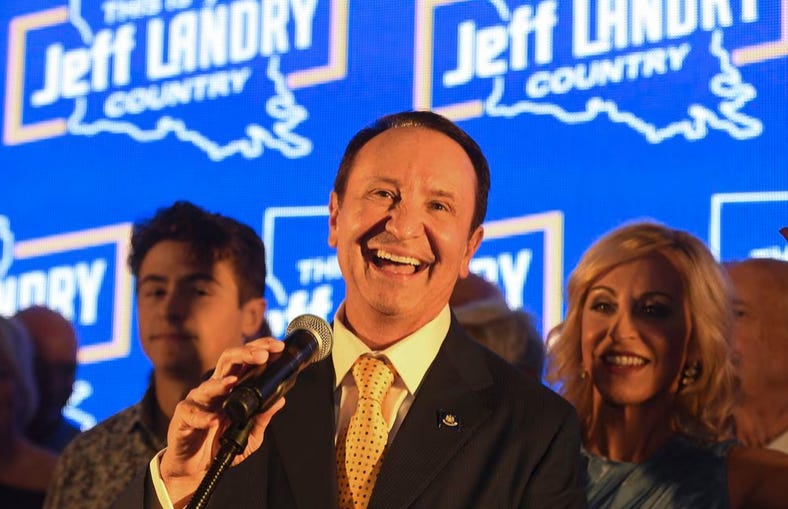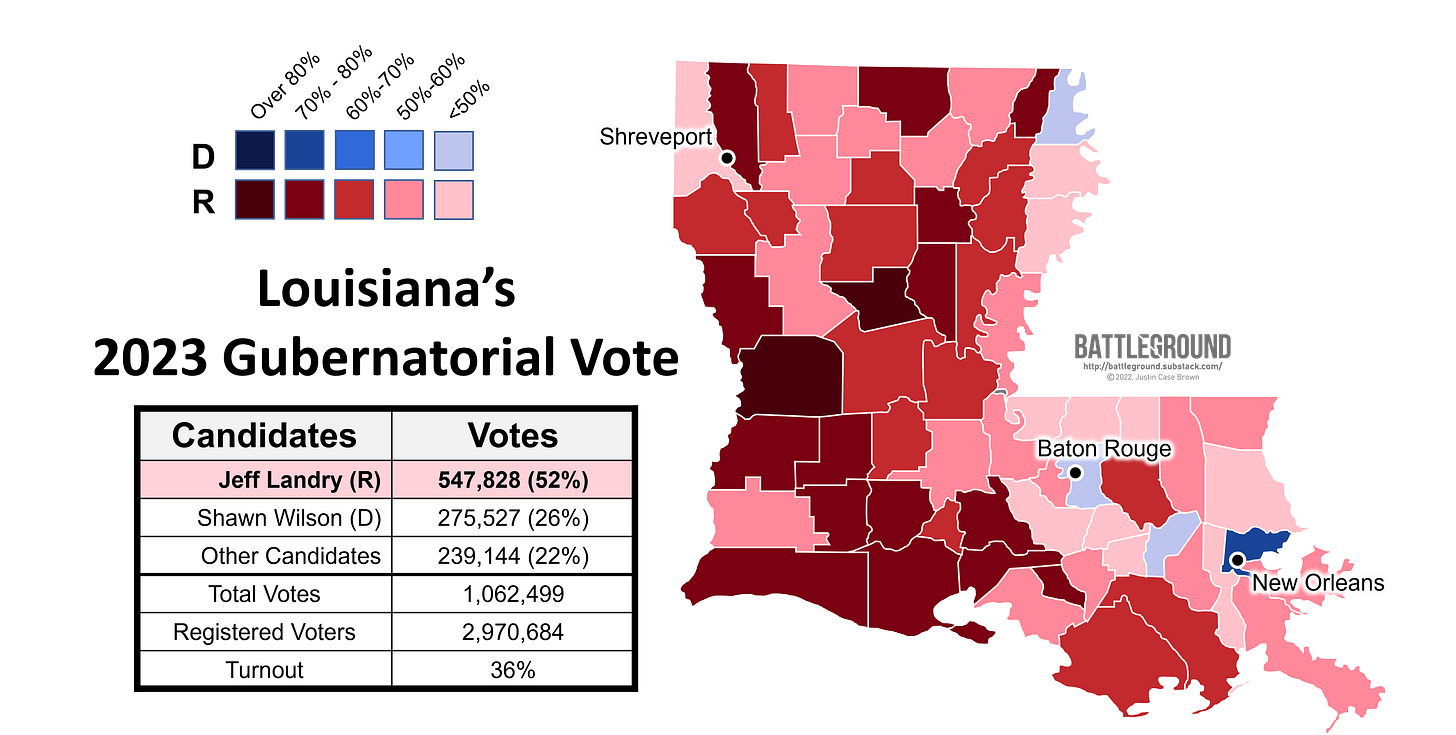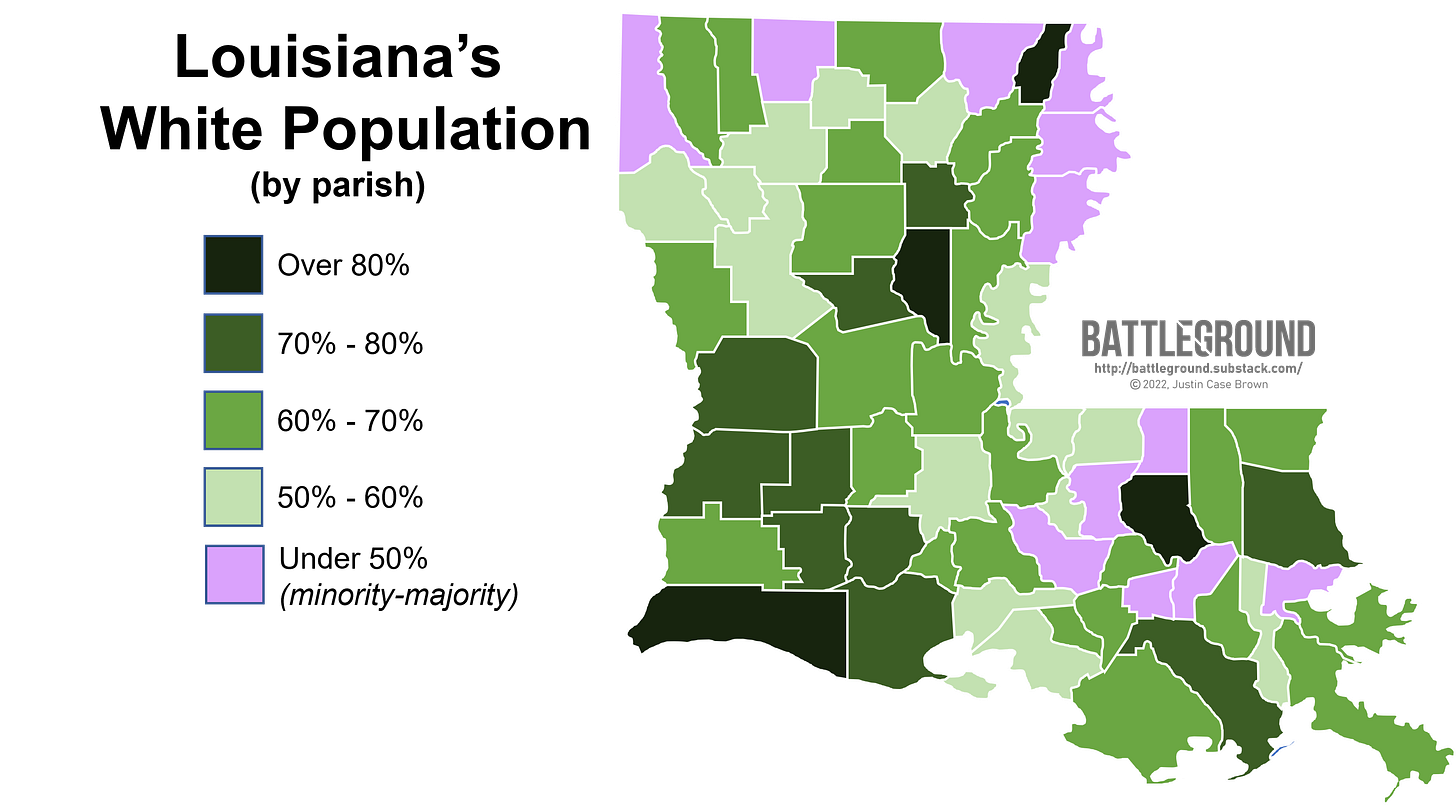Louisiana: Jeff Landry Wins Governor's Race, Flipping the Seat for Republicans
Democrats just lost their only governor in the Deep South.

Louisiana’s elections are run via a two-round system: ALL candidates across all parties run together in a primary and if no candidate receives a majority of the vote, the top-two primary candidates would face each other in a runoff. With Attorney General Jeff Landry receiving 52% of the vote in the October 14 primary, he prevents a runoff election and will become Louisiana’s next governor.
Jeff Landry’s win marks the first time since 2011 that a candidate won the state’s governor’s race without triggering a runoff. He was able to do so primarily due to his position as a conservative stalwart against the outgoing Democratic governor John Bel Edwards. During his tenure as Louisiana Attorney General, Landry blasted Edwards’ veto that upheld access to gender-affirming care for minors and helped orchestrate a veto override in the state legislature. He also co-signed a letter penned by Mississippi Attorney General Lynn Finch requesting information on citizens who sought out-of-state abortions. (Following the ruling of Dobbs v. Jackson Women's Health Organization, Louisiana enacted a near-total abortion ban that does not have exceptions for rape or incest.) After spending thousands to court Trump at Mar-a-Lago Landry received the former president’s endorsement; a pivotal influence on the race as Trump won the state by a wide 18-point margin.
Louisiana’s East-West Divide
This year’s gubernatorial voting map follows the contour of the state’s racial demographics, mirroring an east-west divide where Whiter parishes to the west supported Landry by higher proportions than those in the east. The state’s racial divide was especially highlighted in this race as Landry’s primary Democratic opponent, Transportation secretary Shawn Wilson, is Black. As a result, it’s of little surprise that all four parishes won by Wilson were minority-majority. Meawhile, the remaining minority-majority parishes won by Landry were places where he struggled to obtain over 50% of the vote.
Another important factor in this race was Landry’s unwavering support for the state’s oil and gas industry. The American Petroleum Institute estimates that in 2021 their industry supported 13% of the state’s total jobs and contributed to 21% of the state’s total GDP. Most recently, Landry signed on to support a lawsuit against the Biden administration for illegally reducing the amount of available area for offshore oil and gas lease sales in the Gulf of Mexico. Just weeks before the election, a federal judge ruled in favor of Landry and the oil and gas industry, requiring that the Biden Administration expand the area for lease sales by 6 million acres. As a result of this partnership, the Oil & Gas Workers Association endorsed Landry’s campaign, likely delivering thousands of votes from the state’s southwestern corner where the industry is especially prevalent.
On the whole, Landry ran a straightforward, MAGA-conservative campaign that matches the partisan lean of a majority of the state’s voters. If his actions as attorney general are any indication of how he’ll govern as the state’s head executive, expect Landry to continue giving preferential treatment to executives that drive the state’s leading industries while pushing regressive social reforms that are popular with his base.
Leftover Links
Landry’s ability to court oil and gas workers goes hand-in-hand with his ability to exploit the state’s racial divide. Investigative reporters have uncovered widespread racial discrimination in the state’s oil and gas industries as Black workers are more likely to be denied work than their White counterparts.
As the Deep South loses it’s only Democratic governor, frustrated Democrats blame a “lack of investment in voter mobilization” as the primary issue for the party in 2023.




